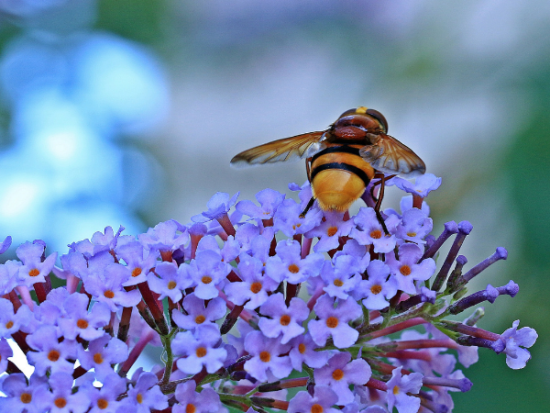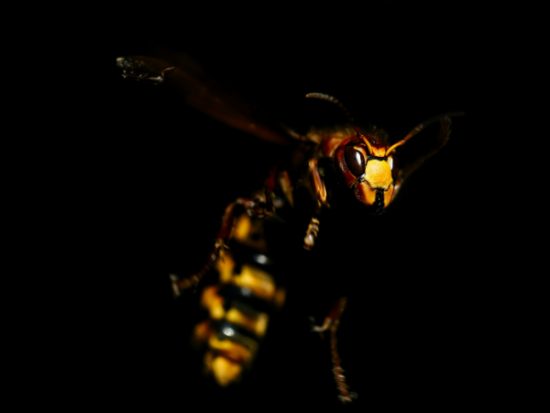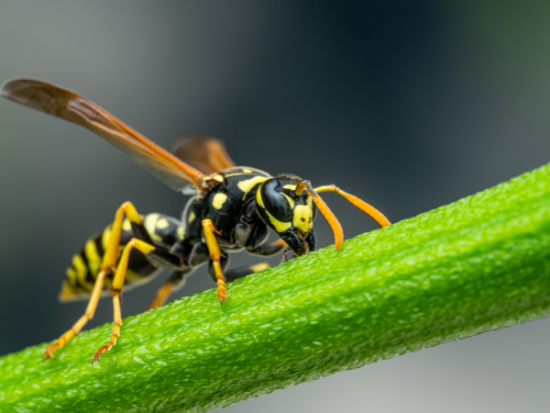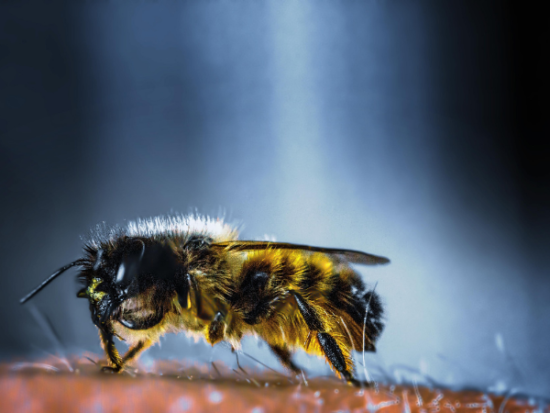Hornet vs. wasp – which one is more harmful?
Understandably, the hornets vs. wasp confusion still perplexes many. The differences between these two insects are often overlooked, and they are grouped as the same when they are not. This is true for people who live far away from nature.
The same can be said for bees and wasps or bees and hornets. When they start flying, they all look the same to some people.
However, there are differences between them, and people must be informed. Honey bees are vital for our food chain, and mistaking them for hornets or wasps is dangerous. You might accidentally destroy a nest when they’re not harming anyone and put yourself in their line of fire for stinging. To know more about the differences between hornets and wasps, read below.
The Vespidae species

Wasps and hornets belong to the Vespidae family. There are over 100,000 known species for wasps, and hornets are one of its subspecies. The major differences between the two are their size and colors.
Belonging to the same Vespidae family, both are known for their stings and venoms. Hornets vs. wasps comparisons still matter despite them being generally the same species.
They are divided into two subfamilies: Vespinae (yellow jackets and hornets) and Polistinae (wasps). The common paper wasp is under the Polistinae subfamily. They can build their nests under house floorboards or nature shrubs. Other common wasps include the mud dauber, known to make their wasp nests in mud, and the solitary wasps or hunting wasps.
Vespinae genera
The subfamily Vespinae is also split into three genera: Vespula (yellow jackets), Dolichovespula, and Vespa (hornets). The most common cause of allergic reactions in the U.S. is the Vespula or yellow jackets. Vespas include the European hornet and the Asian giant hornet.
Difference between hornets vs. wasps
When it’s a prime season, winged insects seem to come out of their nests all at once. The hornets vs. wasps debate becomes moot when people start to hunt them back for perusing — and often wreaking havoc — in gardens, backyard barbecues, and other outdoor activities. Warmer seasons are especially ones to watch out for when it comes to hornets and wasps.
Even though most of these insects can and will sting you if threatened, there is a difference between hornets vs. wasps. Certain types of wasps hornets are more dangerous and venomous than others. Knowing the differences might come in handy one day. Check them out below.
Anatomy
As a subspecies of wasps, hornets are much larger. They can reach up to 5.5cm or more than 2 inches long, whereas wasps are more or less 1cm. Wasps are also known to have yellow and black striped rings, while hornets have black and white rings around their bodies. Hornets are distinguished by their wider heads and larger abdomen, while wasps are more slender.
Feeding habit
Much like bees, adult hornets love sweet substances like nectar, flower sap, and rotten fruits. All things that can be found in nature or near houses with gardens. Adult wasps can be scavengers, predators, or simply feed on nectar, depending on their species. They are also considered predators for smaller insects and their larvae.
Nests
Wasps love the outdoors. They are usually found in the ground-nesting, whether outside in trees, shrubs, or under eaves and decks of houses. This is why people more commonly see wasps during warmer seasons.
Hornet nests vary according to species. Solitary hornets don’t nest, but some social species do. They can nest both indoors and outdoors.
Behavior
Both of the hornets vs. wasps behaviors are more aggressive than bees. Bees sting humans but will die right after. Hornets can be very aggressive, especially when their nests are being threatened.
Wasp stings are pretty much the same but somehow less aggressive than hornets. They can sting multiple times and can be fatal to humans. Some hornet species like the bald-faced hornet can sting even without threats posed.
Sting
Hornets vs. wasps stings are generally bad news for humans. Hornets can sting multiple times without being harmed, unlike bees. The hornets also use both their stings and mandibles to kill their prey and attack any threat.
Their sting is usually more painful to humans than wasps because of their larger size. However, a swarm of wasps waiting to attack can be just as dangerous and even deadly. Both can cause allergic reactions that can cause anaphylactic shocks.
Which is worse, a hornet or a wasp?
The debate between hornets vs. wasps and which one is worse has been a hot issue for many nature experts and enthusiasts. Some beekeepers argue that both are bad for their bee colonies because they prey on bees and larvae. Not to mention, hornets vs. wasps stings are painful to deal with if you ever become on the receiving end of their stingers.
Hornets can be social or solitary insects, depending on the species. Wasps are always social creatures. Both can be predators to smaller insects and your flower garden.
If you spot one in your backyard, don’t panic yet. Try to get away from it as soon as you can. You can also keep insect repellants or hornets and wasp sprays to get rid of them.
How bad is a hornet sting?
Unless you have allergies, being stung by hornets and wasps isn’t life-threatening. Hornet stings can vary from mild to moderate, with a few other symptoms like redness, swelling, and itching. However, one species is making headlines nowadays.
The Asian giant hornet, or more commonly referred to as the “murder hornet.” The murder part mostly refers to the bees and colonies they ransack, but their sting, enough to pierce through a beekeeper’s suit, can also be quite painful for humans.
The common wasp can also cause pain and discomfort with its stingers. Many children who play outdoors get stung and find the experience painful and scary. Even the average adult experiences mild to moderate levels of pain when stung by wasps. If you suspect you are allergic to hornets and wasps, call 911 immediately.
Related Articles
Summary
If you’re still wondering whether the hornets vs. wasp debate is moot after all after reading up on their differences, you aren’t the only one. Many people can barely tell the difference, much less care when they already have a winged insect out to sting them. However, these predatory insects still play a role in nature, and ultimately, our food chain.
Although, species like the murder hornets have been alarming beekeepers worldwide. The amount of damage they’ve done and can do to bee colonies is devastating.
In any case, hornets and wasps are considered pests in many parts of the world. If you want to know more about them and their role in nature, contact your local beekeepers, and they will be all too happy to impart their knowledge to those interested.




